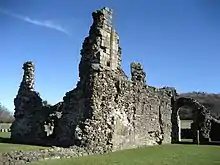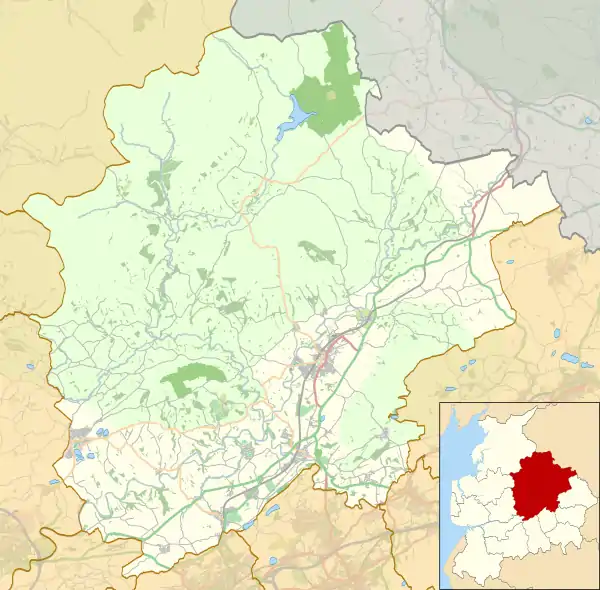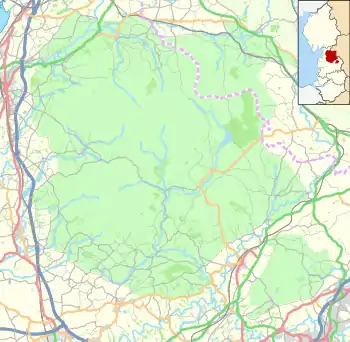Sawley Abbey
Sawley Abbey was an abbey of Cistercian monks in the village of Sawley, Lancashire, in England (and historically in the West Riding of Yorkshire). Created as a daughter-house of Newminster Abbey, it existed from 1149 until its dissolution in 1536, during the reign of King Henry VIII. A monk here, William de Remmyngton went on to become Chancellor of the University of Oxford in 1372–3. The last two abbots of Sawley were both put to death. Thomas Bolton was executed as a consequence of his resistance to the dissolution[1][2] and William Trafford, the last Abbot, was executed in Lancaster on 10 March 1537 alongside John Paslew, the last Abbot of Whalley Abbey, for alleged involvement in the Pilgrimage of Grace.[3]
| Sawley Abbey | |
|---|---|
 Sawley Abbey | |
| Location | Sawley, Lancashire |
| Coordinates | 53.9134°N 2.3418°W |
Listed Building – Grade I | |
| Official name | Sawley Abbey Ruins |
| Designated | 16 November 1954 |
| Official name | Sawley Cistercian abbey and associated earthworks |
| Designated | 8 February 1915 |
 Location of Sawley Abbey in the Borough of Ribble Valley  Sawley Abbey (the Forest of Bowland) | |
The ruins of Sawley Abbey, which are now controlled by English Heritage, are open to the public. Although not an extensive ruin, there are boards on the site that give information regarding the history of the abbey and its former inhabitants. Today, parts of the church and refectory can still be seen.
The abbey is a Grade I listed building and Scheduled Ancient Monument.[4]
In March 2009, Sawley Abbey was featured in the first episode of series 3 of the TV series The Tudors.
Burials
- William de Percy, 6th Baron Percy and wife Ellen de Balliol (daughter of Ingram de Balliol)
- Henry de Percy, 7th Baron Percy (1228–1272) and wife Eleanor de Warenne Percy (daughter of John de Warenne, 6th Earl of Surrey)
Media gallery
 The ruins of the Abbey
The ruins of the Abbey Ruins of an old gateway
Ruins of an old gateway
See also
References
- Altazin, Keith. "THE NORTHERN CLERGY AND THE PILGRIMAGE OF GRACE" (PDF).
- Knowles, David; Knowles, Dom David (27 September 1979). The Religious Orders in England. Cambridge University Press. ISBN 9780521295680.
- "Houses of Cistercian monks: Sawley | British History Online". www.british-history.ac.uk. Retrieved 9 February 2016.
- Historic England (2007). "Sawley Abbey (1072099)". National Heritage List for England. Retrieved 20 September 2008.